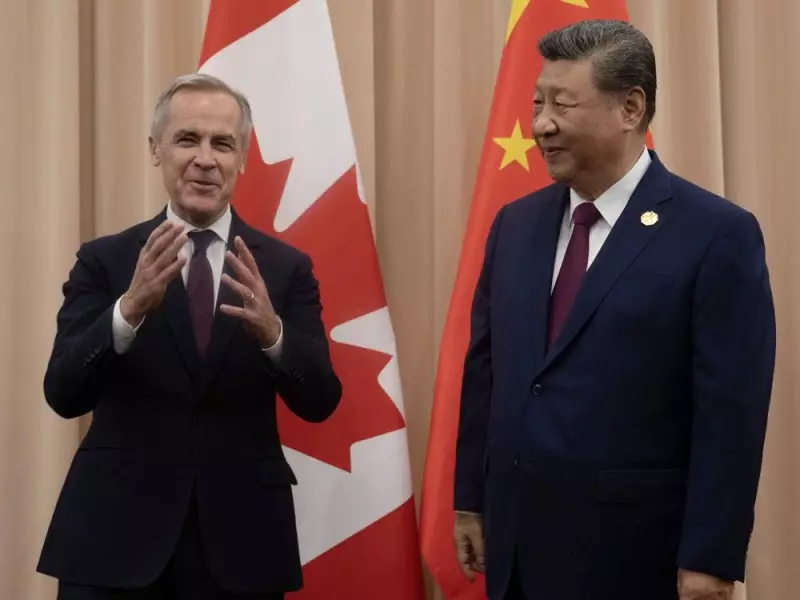
As speculation grows about Mark Carney's potential entry into Canadian politics, national security experts are sounding alarms about how Beijing might perceive such a development. The former Bank of Canada and Bank of England governor's international connections and policy positions appear perfectly aligned with Chinese strategic interests, according to diplomatic observers.
A Welcome Development in Beijing
Multiple China-watchers and foreign policy analysts contend that Chinese leadership would view Carney's ascent to Canada's highest office as exceptionally favorable. His extensive background in global finance and climate initiatives mirrors China's preferred approach to international relations—one that prioritizes economic cooperation over human rights concerns or security disputes.
Carney's high-profile roles at the Bank of England and his current position as UN Special Envoy for Climate Action have positioned him as a globalist figure, exactly the type of Western leader China finds most amenable to its long-term objectives.
The Climate Policy Connection
Environmental policy represents a particular area of alignment. Carney's championing of sustainable finance through initiatives like the Glasgow Financial Alliance for Net Zero (GFANZ) dovetails neatly with China's green energy ambitions. While climate action represents a global priority, critics worry that Carney's approach might avoid confronting China's substantial carbon emissions and coal expansion.
This potential soft-pedaling on environmental accountability could undermine Western leverage in climate negotiations while allowing China to continue its current energy trajectory largely unchecked.
Economic Priorities Versus Security Concerns
Throughout his career, Carney has consistently emphasized economic interdependence and financial stability above geopolitical tensions. This worldview, while valuable in central banking, raises questions about how he would handle increasingly complex security challenges posed by China.
From intellectual property theft to industrial espionage and territorial expansionism, Canada faces multiple China-related security dilemmas that require firm responses—precisely the type of confrontational posture that Carney's background suggests he might avoid.
The Bigger Picture for Canada
The concern isn't that Carney would deliberately advance Chinese interests, but that his entire professional framework aligns with an approach to international relations that China has successfully exploited in other Western nations. By prioritizing economic cooperation and climate partnerships, hard security considerations and human rights issues could become secondary.
As Canada navigates an increasingly dangerous geopolitical landscape, the question becomes whether Carney's global financial expertise translates into effective leadership against sophisticated state actors with ambitions that often conflict with Western democratic values and security interests.






